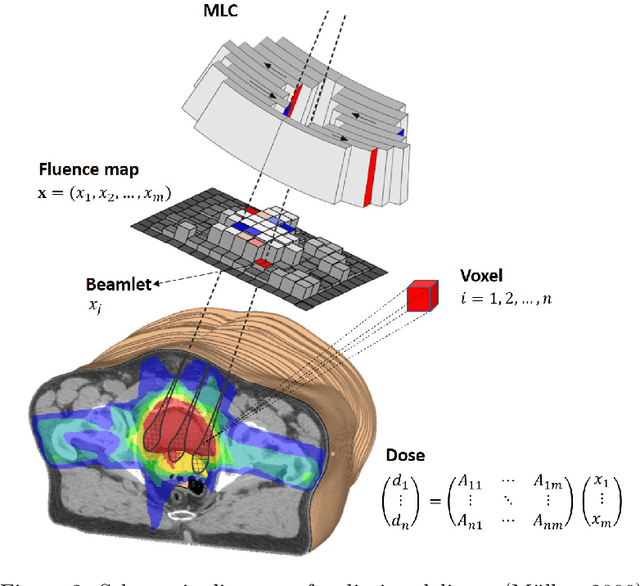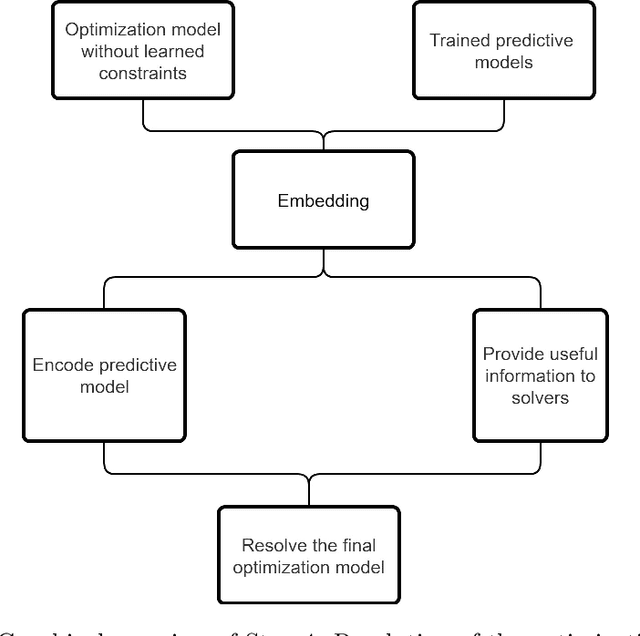Optimization with Constraint Learning: A Framework and Survey
Paper and Code
Oct 05, 2021



Many real-life optimization problems frequently contain one or more constraints or objectives for which there are no explicit formulas. If data is however available, these data can be used to learn the constraints. The benefits of this approach are clearly seen, however there is a need for this process to be carried out in a structured manner. This paper therefore provides a framework for Optimization with Constraint Learning (OCL) which we believe will help to formalize and direct the process of learning constraints from data. This framework includes the following steps: (i) setup of the conceptual optimization model, (ii) data gathering and preprocessing, (iii) selection and training of predictive models, (iv) resolution of the optimization model, and (v) verification and improvement of the optimization model. We then review the recent OCL literature in light of this framework, and highlight current trends, as well as areas for future research.
 Add to Chrome
Add to Chrome Add to Firefox
Add to Firefox Add to Edge
Add to Edge